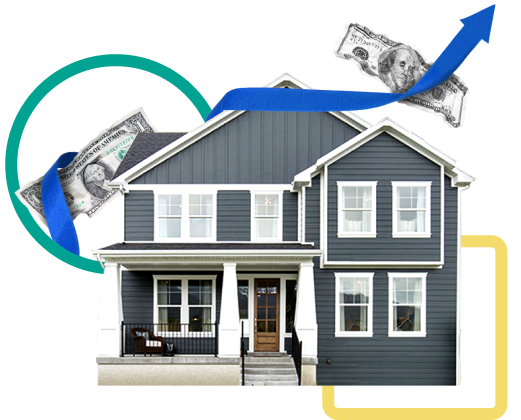Finding the Best Home Insurance in New Hampshire
Understanding Home Insurance Requirements in New Hampshire
To get the best home insurance in New Hampshire that meets your needs, you’ll first need to understand the state’s requirements.
In NH, all homeowners are required to carry insurance for at least the replacement value of the home. This means if your house were completely destroyed, the policy would pay to rebuild it. The average cost to rebuild a home in New Hampshire is $200 per square foot, so for a 2,000 square foot home, at least $400,000 in coverage is recommended.
You’ll also want coverage for other structures like garages, pools or sheds. Liability insurance protects you in case someone is injured at your home. Most NH insurers recommend at least $100,000 to $300,000 in liability coverage.
Flood and Wind Insurance
Due to NH’s varied weather, additional flood and wind insurance is a good idea for most. Flood insurance will cover water damage from flooding, while wind insurance protects against windstorms like hurricanes or tornadoes. You’ll typically need separate policies for these.
Comparing Home Insurance Rates
The average home insurance premium in NH is $900 per year, but rates vary significantly based on factors like your home’s value, location, and coverage amounts. To find the most affordable rates, compare quotes from multiple companies. Look for discounts like bundling with auto insurance or installing safety features like smoke detectors or fire alarms.
By understanding NH’s home insurance requirements, getting adequate coverage for your property and valuables, and shopping around at different insurers, you’ll be sure to find the best and most comprehensive home insurance policy for you. Putting in some effort upfront will give you peace of mind and protection for your biggest investment.
Comparing Rates and Coverage From Top Providers
Check out these top tips for evaluating different companies:
1. Compare Quotes From Multiple Providers
Don’t just go with the first quote you get. Compare rates from at least 3-5 of the major home insurance companies in New Hampshire like State Farm, Liberty Mutual, Travelers, and Progressive. Get quotes for the same coverage amounts so you’re comparing apples to apples. Some companies may offer lower rates or different discounts that could save you hundreds per year.
2. Review the Details of Each Policy
Make sure you understand exactly what’s covered under each policy. Check if things like natural disasters, theft, personal liability, and replacement cost coverage for the structure and contents are included. Also, compare deductibles—a higher deductible means lower premiums but more out of pocket costs if you file a claim. Choose a deductible amount you can afford.
3. Factor in Discounts
Most providers offer discounts for bundling with other policies (like auto), installing security systems, being claims-free, and more. Ask each company what discounts you may qualify for—it could make a big difference in your final rate.
4. Check the Company’s Financial Stability and Customer Satisfaction
You want a provider that will be there when you need to file a claim. Check independent reviews and ratings to see each company’s financial strength and customer service track record. Favor companies with an “A” rating or better and a history of fast, fair claims handling.
5. Consider an Independent Insurance Agent
An independent agent can help evaluate quotes from multiple companies and find you the best, most affordable coverage. They have a fiduciary responsibility to serve your best interests, not any one particular insurance provider. Working with an agent, especially when first buying home insurance, can help ensure you don’t miss any important coverage or end up paying more than you need to.
READ ALSO: Rental Car Insurance in Mexico
Key Factors That Impact Your Home Insurance Premiums
Some of the major factors that determine how much you’ll pay include:
1. Location
Where your home is located plays a significant role in your premium costs. Homes in areas with a higher risk of natural disasters like floods, hurricanes or wildfires generally have higher premiums due to the increased chance of claims being filed. Homes in cities also often have higher premiums than those in suburban or rural areas due to a higher risk of theft or vandalism.
2. Type of Home
The type of home you have also impacts your premium. Larger homes, especially those with special features like pools, trampolines or valuables collections, cost more to insure. Homes built with more expensive materials like stone or brick tend to have lower premiums than those with wood or vinyl siding since they are less susceptible to damage. The age and condition of your home are also considered, with newer, well-maintained homes receiving lower premiums.
3. Amount of Coverage
The more coverage you buy, the higher your premiums will be. In addition to coverage for the structure of your home, you’ll need to choose coverage amounts for other categories.
READ ALSO: How to Find the Lowest Home Insurance Rates in Massachusetts
Ways to Save on Your New Hampshire Home Insurance Policy
There are several ways you can save money on your New Hampshire home insurance policy. You may be able to lower your premium by:
1. Bundling with other policies
If you have multiple policies with the same company like auto, life, or umbrella insurance, you may qualify for a discount on your home insurance. Bundling multiple policies together can save you up to 15-30% on each policy.
2. Increasing your deductibles
The higher your deductibles, the lower your premiums will be. Consider raising your deductibles to $1,000 or $2,500 which can lower your annual premium by up to 25%. Just make sure you can afford to pay the higher deductibles if you have a claim.
3. Improving home security
Adding safety features like deadbolt locks, a security system, fire extinguishers or smoke detectors can make your home less risky to insure and may qualify you for a discount of up to 20% on your premium.
4. Reviewing coverage limits
You may be paying for more coverage than you actually need. Review how much coverage you have for your home’s structure, personal property, and liability and consider lowering limits to what’s necessary. Decreasing coverage by even small amounts can lower your premium.
5. Paying premiums annually
Most companies charge slightly lower premiums if you pay once a year instead of monthly or quarterly installments. Paying annually in one lump sum may qualify you for a discount of up to 5% on your total annual premium.
FAQs About Home Insurance in New Hampshire
Here are some frequently asked questions about home insurance in New Hampshire:
What types of home insurance are required in New Hampshire?
New Hampshire requires all homeowners to purchase homeowner’s insurance that includes coverage for fire and theft, as well as personal liability. However, additional coverage like flood insurance depends on your home’s location and value. Check with insurance agents about the specific policies needed for your property.
How much home insurance do I need?
The amount of home insurance you need depends on several factors, including your home’s replacement cost, location, and risk factors like natural disasters. Work with an insurance agent to determine an accurate replacement cost for your house and ensure you have enough coverage in the event of damage. It’s best to be overinsured rather than underinsured.
How can I save money on home insurance in New Hampshire?
There are a few ways to reduce your home insurance costs in New Hampshire:
1. Increase your deductibles. The higher your deductibles, the lower your premiums. •Bundle multiple policies. Bundle your home insurance with auto, life or other policies to qualify for a discount.
2. Improve home security. Install safety features like smoke detectors, fire alarms, and burglar alarms. This lowers risk to the insurer and may lower your rates.
3. Check for discounts. See if you qualify for discounts for being claims-free, bundling, insuring an energy efficient home, or other discounts. •Shop around. Compare rates from different companies to find a policy that meets your needs at the best price.
4. Consider a higher coverage limit. In some cases, increasing your coverage limits may lower your rates because you appear less risky to insure. Check with agents to see if this applies in your situation.



